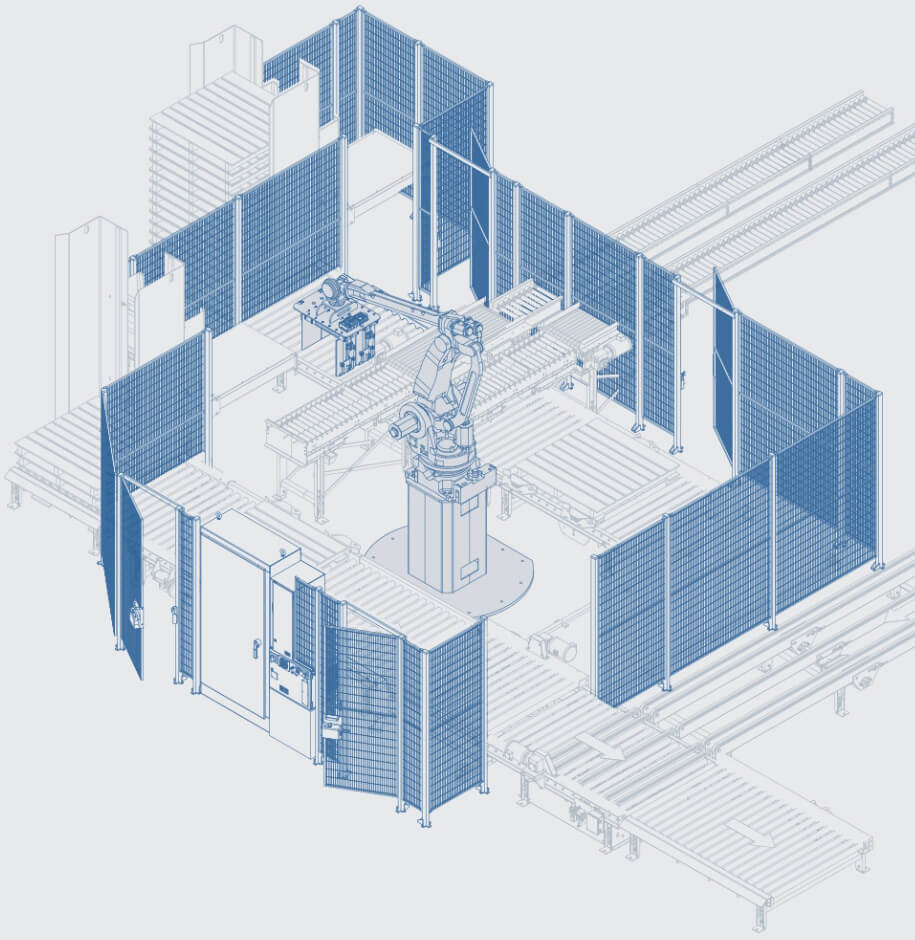Does Maintenance Really Matter?
Regularly scheduled inspections and maintenance on your warehouse automation and material handling systems is a critical requirement of keeping your equipment running at peak efficiency. Unscheduled downtime of these systems can result in production stops, idle employees, late shipments to customers, and significant costs for emergency repairs. So, yes, most facility managers would agree, maintenance really matters. And, if you have to ask when the last time your controls, conveyors, and other key system components were inspected and serviced...it’s time.
MMCI works with a major food manufacturer that produces extruded pasta products for a family-friendly brand of ready eat meal solutions located in the Midwestern U.S. MMCI provided this facility the original conveyor equipment for their over half a dozen production lines a number of years ago and has maintained the partnership, replacing their older, more worn out equipment and even expanding with new systems into other plants. Recently, MMCI’s the newly created service and maintenance group went to the facility for a follow-up meeting regarding the equipment status and maintenance on the system and equipment.
The problem the MMCI service group found from the meeting was that the company’s internal maintenance group was unable to keep up with the service needs of this unique few hundred thousand square foot facility and accommodate all of their production lines with the same amount of attention to detail. Because of the high demands placed on the maintenance crew, the only lines that ever received preventative maintenance and repairs were the ground lines, essentially leaving the overhead transport conveyors to fend for themselves (and hopefully NOT breakdown). The results of this unintentional neglect: oil leaks and product stoppage on the line.
While a small oil leak in your car on the garage floor might not be a big deal or cause for immediate concern, but it’s a completely different realm of importance when you’re dealing with a food manufacturing facility with throughput requirements and hundreds of employees. The oil from the gear boxes on the conveyors was dripping onto the floor causing, a potentially dangerous slipping hazard. A slipping hazard that can end up being extremely expensive – according to OSHA, in 2013, the average cost of a workers compensation claim for a slip and fall injury was a staggering, $20,228.
Is preventative maintenance that important? Perhaps…can you easily afford $20,228?
In addition to just the slipping hazard created by the leaky gear boxes, product stoppage on the lines was also beginning to occur during change over periods. Because the conveyors weren’t being properly maintained, the oils leaks would cause the system to slow down to a crawl. So much so they would have to stop the lines and push them with a long bar to jump start them back to moving again. And besides just the downtime, you can easily pick out a thing or two wrong with this method of moving overhead conveyors and materials.
With decades of combined service and maintenance experience across a variety of different types of equipment, MMCI’s team understood the gravity of the current situation and began an audit of the facility’s entire secondary packaging line. They examined for wear and tear; all of the rollers, bearings, sprockets, and belts along with the leaky gear boxes to determine the state of the equipment and what required repairs and/or replacement. The service group followed the audit with a comprehensive parts and labor quote to get the system running at peak efficiency.
After the customer approved the quote, MMCI’s service team set out to execute preventative maintenance services on their overhead transportation conveyors. This included the line shaft conveyor, slider-bed conveyor as well as the motor driven roller (MDR) conveyor – where they replaced and repaired gearboxes, rollers, bearings and belts. MMCI worked with the customer to schedule the service during a slower production period to minimize interruptions to the lines, downtime and production schedule disruptions.
Once the maintenance was complete, the facility was up and running at a percentage much closer to capacity than before. Their oil leaks were gone and they have not had any additional issues with product stoppage during change over, to date. And most importantly, the concerns about slip and fall injuries has all but been eliminated, ensuring employees have a safer workplace to come to each day.


